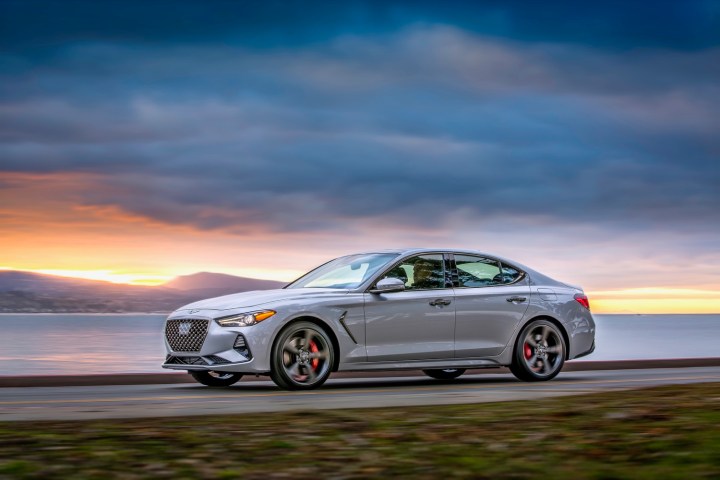 For many buyers whose top priority is a car that won’t break down, the J.D. Power Initial Quality Study is gospel. J.D. Power just released the results of its 2019 Initial Quality Study, and the Korean trio of Genesis, Kia, and Hyundai took the top three spots.
For many buyers whose top priority is a car that won’t break down, the J.D. Power Initial Quality Study is gospel. J.D. Power just released the results of its 2019 Initial Quality Study, and the Korean trio of Genesis, Kia, and Hyundai took the top three spots.
Luxury brand Genesis ranked highest, followed by sibling brands Kia and Hyundai. It’s a big win for Genesis which, as a relative newcomer to the luxury segment, needs to build credibility with buyers. The high scores achieved by Kia and Hyundai show that you don’t have to spend a lot of money to get a quality car. This is the second year in a row that the three Korean brands have swept the top three spots, and it’s Kia’s fifth consecutive year as the top-ranked mass-market brand. Ford, Lincoln, Chevrolet, Nissan, Dodge, Lexus, and Toyota rounded out the top 10. Fiat and Tesla were not included due to inadequate sample size, according to J.D. Power.
J.D. Power calculates initial quality by tracking the number of problems experienced by car buyers and lessees within the first 90 days of ownership. Automakers are ranked based on the average number of problems per 100 vehicles. The lower the number, the better. Genesis averaged 63 problems per 100 vehicles, while Kia and Hyundai averaged 70 problems and 71 problems, respectively. The industry average was 93 problems per 100 vehicles.
At the other end of the scale, Jaguar ranked lowest in initial quality, with sibling brand Land Rover just above it. Jaguar averaged 130 problems per 100 vehicles, while Land Rover averaged 123 problems. Mitsubishi was third from the bottom, with an average 121 problems per 100 vehicles.
In addition to ranking automakers, J.D. Power also ranks individual models. Genesis, Kia, and Hyundai vehicles topped many categories, although it wasn’t a clean sweep. The model with the highest overall ranking also wasn’t from any of the Korean brands. It was the Porsche 911, an impressive achievement considering that, as a brand, Porsche only ranked 16th in initial quality.
The J.D. Power Initial Quality Study can be a valuable tool for car buyers, but the scores must be viewed in context. Many reported problems are design or usability issues, not defects. One of the biggest problem areas continues to be infotainment systems, which many customers still find difficult to use. That’s annoying, but it doesn’t mean a car is more likely to break down. Actual defects, including paint imperfections, brake and suspension noises, engines that won’t start, and check engine lights, did crop up frequently as well, according to J.D. Power.


